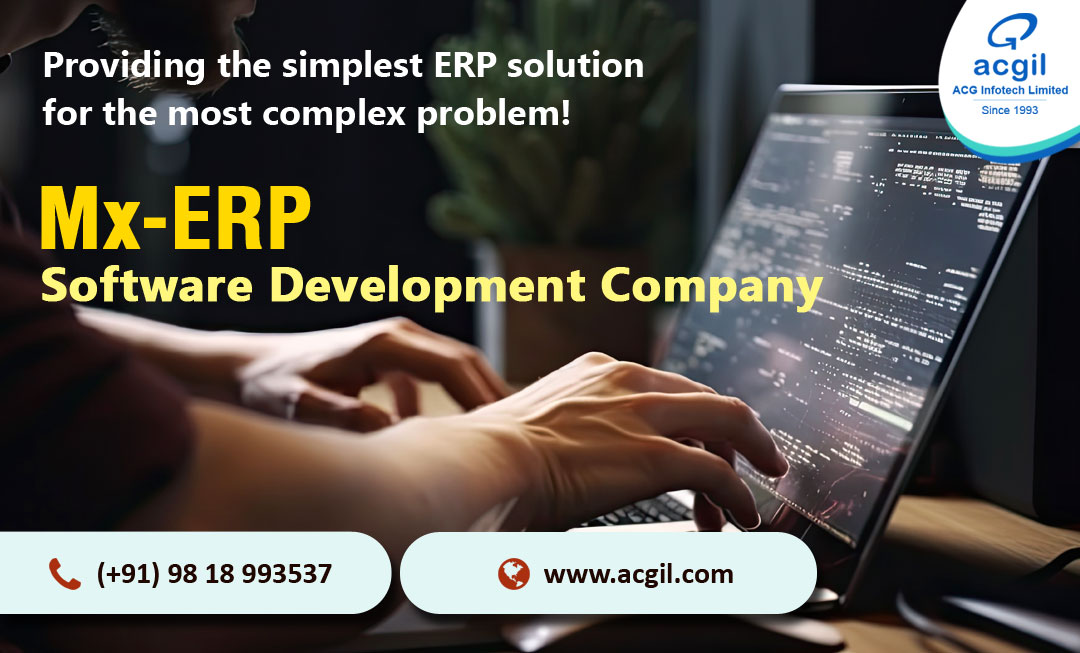Table of Contents
Introduction
Understanding ERP Systems
- What is an ERP System?
- Key Features of ERP Systems
- Benefits of Using an ERP System in Manufacturing
Enhancing Production Planning and Scheduling
- Centralized Data Management
- Real-Time Monitoring and Reporting
- Resource Optimization
- Demand Forecasting
Streamlining Inventory Management
- Inventory Tracking and Control
- Supplier Management
- Material Requirement Planning (MRP)
- Just-In-Time (JIT) Inventory
Improving Quality Control
- Integrated Quality Management
- Traceability and Compliance
- Quality Analytics and Reporting
Optimizing Supply Chain Management
- Supply Chain Visibility
- Supplier Collaboration
- Order Processing and Fulfillment
- Transportation Management
Enhancing Cost Management
- Cost Analysis and Reporting
- Budgeting and Forecasting
- Waste Reduction and Cost Optimization
Increasing Workforce Efficiency
- HR and Payroll Management
- Skill Development and Training
- Employee Performance Evaluation
Addressing Maintenance and Equipment Downtime
- Preventive Maintenance Scheduling
- Equipment Monitoring and Predictive Maintenance
- Downtime Analysis and Mitigation
Ensuring Regulatory Compliance
- Industry-Specific Regulations
- Environmental and Safety Compliance
- Auditing and Reporting
Data Security and Confidentiality
- Data Encryption and Access Controls
- User Authentication and Authorization
- Disaster Recovery and Backup
Integration with Other Systems
- CRM Integration
- Financial Management Integration
- Business Intelligence Integration
Cloud-Based ERP Systems
- Advantages of Cloud ERP
- Considerations for Cloud Adoption
Selecting the Right ERP System for Your Manufacturing Process
- Understanding Your Business Needs
- Scalability and Flexibility
- Vendor Reputation and Support
Conclusion
Introduction
In today’s fast-paced manufacturing landscape, staying competitive and efficient is paramount. One way to achieve this is by implementing an Enterprise Resource Planning (ERP) system. An ERP system can revolutionize your manufacturing process by providing a unified platform for managing various aspects of your operations. From production planning to inventory management, quality control, and beyond, an Manufacturing ERP System can streamline processes, boost productivity, and improve decision-making capabilities.
Understanding ERP Systems
What is an ERP System?
At its core, an ERP system is a comprehensive software solution that integrates all essential business processes and data into a single database. It allows different departments within an organization to access and share information seamlessly. ERP systems are modular, with each module focusing on specific areas such as finance, human resources, supply chain, and manufacturing.
Key Features of ERP Systems
- Centralized Data Management: An ERP system centralizes data from various departments, enabling real-time access to accurate and consistent information.
- Workflow Automation: ERP systems automate repetitive tasks, reducing manual errors and enhancing efficiency.
- Reporting and Analytics: With robust reporting tools, ERP systems provide valuable insights into performance metrics, aiding informed decision-making.
Benefits of Using an ERP System in Manufacturing
- Streamlined Processes: An ERP system streamlines manufacturing processes, leading to reduced lead times and increased throughput.
- Enhanced Collaboration: ERP systems enable seamless collaboration among different manufacturing units and departments.
- Better Inventory Management: Real-time tracking of inventory levels helps prevent stockouts and excess inventory.
- Improved Customer Service: ERP systems enhance customer service by providing accurate order status and delivery information.
Enhancing Production Planning and Scheduling
- Centralized Data Management: In a manufacturing setup, multiple teams work simultaneously. An ERP system facilitates seamless communication and data sharing between these teams. For example, the production planning team can easily access inventory data, allowing them to plan production schedules based on real-time stock levels.
- Real-Time Monitoring and Reporting: ERP systems enable real-time monitoring of production processes. This real-time data allows managers to identify potential bottlenecks and take corrective actions promptly. Additionally, customizable reports provide valuable insights into production performance and efficiency.
- Resource Optimization: With an ERP system, manufacturers can optimize resource allocation. The system helps identify idle capacity and redirects resources to where they are needed the most, resulting in improved production efficiency.
- Demand Forecasting: ERP systems integrate data from various sources, including historical sales data and market trends, to forecast future demand accurately. This helps manufacturers plan their production schedules and raw material procurement accordingly.
Streamlining Inventory Management
- Inventory Tracking and Control: An ERP system’s inventory management module provides real-time visibility into inventory levels, enabling manufacturers to track stock movement accurately. This ensures that the right quantity of raw materials is available when needed.
- Supplier Management: ERP systems allow manufacturers to manage their supplier relationships more effectively. By maintaining a centralized supplier database, manufacturers can easily compare prices, negotiate contracts, and evaluate supplier performance.
- Material Requirement Planning (MRP): The MRP module in an ERP system calculates the material requirements based on production schedules, current inventory levels, and pending customer orders. This helps manufacturers avoid material shortages and plan procurements efficiently.
- Just-In-Time (JIT) Inventory: An ERP system can support the implementation of Just-In-Time inventory management principles. JIT ensures that raw materials arrive just before they are needed, reducing inventory holding costs and improving cash flow.
Improving Quality Control
- Integrated Quality Management: An ERP system helps maintain consistent quality by integrating quality control processes into the manufacturing workflow. Quality checks can be scheduled at critical stages, ensuring defects are caught early.
- Traceability and Compliance: ERP systems enable product traceability throughout the manufacturing process. This is crucial in industries where compliance with safety and quality standards is essential.
- Quality Analytics and Reporting: With an ERP system’s quality analytics and reporting tools, manufacturers can monitor and analyze quality metrics to identify patterns and areas for improvement.
Optimizing Supply Chain Management
- Supply Chain Visibility: An ERP system provides end-to-end visibility into the supply chain, from raw material procurement to product delivery. This transparency allows manufacturers to identify potential bottlenecks and make data-driven decisions.
- Supplier Collaboration: ERP systems facilitate collaboration with suppliers, enabling real-time communication and data exchange. This enhances supply chain efficiency and reduces lead times.
- Order Processing and Fulfillment: ERP systems automate the order processing and fulfillment process, reducing manual errors and improving order accuracy.
- Transportation Management: ERP systems can integrate with transportation management software, optimizing logistics and reducing transportation costs.
Enhancing Cost Management
- Cost Analysis and Reporting: An ERP system’s financial module provides detailed cost analysis and reporting, helping manufacturers identify cost drivers and make informed cost-cutting decisions.
- Budgeting and Forecasting: With budgeting and forecasting tools, ERP systems enable manufacturers to plan and allocate resources effectively.
- Waste Reduction and Cost Optimization: ERP systems facilitate waste reduction initiatives by identifying areas of excessive resource consumption. This contributes to cost optimization and sustainability.
Increasing Workforce Efficiency
- HR and Payroll Management: ERP systems streamline HR and payroll processes, ensuring accurate and timely payment of employees.
- Skill Development and Training: ERP systems can track employee training and skill development, helping manufacturers build a competent workforce.
- Employee Performance Evaluation: With performance evaluation tools, ERP systems enable objective performance assessments, fostering a culture of continuous improvement.
Addressing Maintenance and Equipment Downtime
- Preventive Maintenance Scheduling: ERP systems help schedule preventive maintenance tasks, reducing equipment breakdowns and downtime.
- Equipment Monitoring and Predictive Maintenance: With real-time equipment monitoring, manufacturers can implement predictive maintenance practices, preventing unplanned downtime.
- Downtime Analysis and Mitigation: ERP systems analyze equipment downtime data, helping manufacturers identify root causes and implement corrective actions.
Ensuring Regulatory Compliance
- Industry-Specific Regulations: ERP systems can be customized to comply with industry-specific regulations and standards.
- Environmental and Safety Compliance: Manufacturers can use ERP systems to track and ensure compliance with environmental and safety regulations.
- Auditing and Reporting: ERP systems maintain detailed audit trails and facilitate reporting for compliance purposes.
Data Security and Confidentiality
- Data Encryption and Access Controls: ERP systems implement robust data encryption and access control measures, safeguarding sensitive information.
- User Authentication and Authorization: ERP systems control access to data based on user roles and permissions, preventing unauthorized access.
- Disaster Recovery and Backup: ERP systems have built-in disaster recovery and backup mechanisms, ensuring data integrity and availability.
Integration with Other Systems
- CRM Integration: ERP systems can integrate with Customer Relationship Management (CRM) software, providing a holistic view of customer interactions and preferences.
- Financial Management Integration: Integration with financial management systems allows for seamless financial data flow and reporting.
- Business Intelligence Integration: ERP systems can integrate with Business Intelligence (BI) tools, enabling data analysis and visualization.
- Advantages of Cloud ERP: Web-based ERP software offer scalability, flexibility, and cost-effectiveness, as they eliminate the need for on-premises infrastructure.
- Considerations for Cloud Adoption: Manufacturers should consider factors such as data security, vendor reputation, and scalability when adopting cloud-based ERP systems.
Selecting the Right ERP System for Your Manufacturing Process
- Understanding Your Business Needs: Before selecting an ERP system, manufacturers should assess their specific business needs and requirements.
- Scalability and Flexibility: An ideal ERP system should be scalable and flexible enough to accommodate future business growth.
- Vendor Reputation and Support: Choosing a reputable ERP vendor with excellent customer support is crucial for successful implementation and post-implementation support.
Conclusion
An ERP system is a game-changer for manufacturing companies seeking to streamline their operations, boost productivity, and improve overall efficiency. From enhancing production planning and inventory management to optimizing the supply chain and ensuring regulatory compliance, an ERP system provides the tools needed for success in today’s competitive market. Do you want to know, who is the best ERP Software Development Company in India then Go to ACG infotech and Check Here!
FAQs
Q: What is an ERP system?
Ans: An ERP system is a comprehensive software solution that integrates essential business processes and data into a single database, facilitating seamless communication and collaboration among different departments.
Q: How can an ERP system improve inventory management?
Ans: ERP systems provide real-time tracking of inventory levels, enabling accurate inventory control, efficient supplier management, and effective material requirement planning.
Q: What benefits does an ERP system offer in terms of quality control?
Ans: ERP systems support integrated quality management, product traceability, and quality analytics, helping manufacturers maintain consistent product quality and comply with industry standards.
Q: How can an ERP system optimize supply chain management?
Ans: ERP systems offer end-to-end visibility into the supply chain, facilitate supplier collaboration, automate order processing, and improve transportation management.
Q: What factors should manufacturers consider when selecting an ERP system?
Ans: Manufacturers should consider their specific business needs, scalability, flexibility, vendor reputation, and support when selecting an ERP system.

